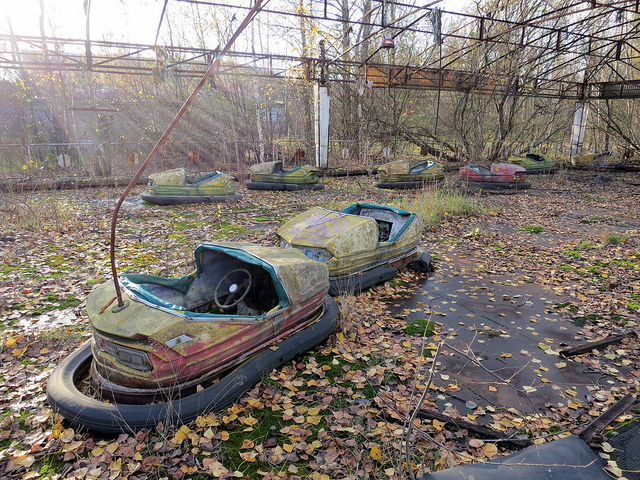Abstracts: Chernobyl, Arctic Oil Drones, and More
• On the 30th anniversary of the meltdown at the Chernobyl nuclear plant, explore 360-degree pictures of the recovering environment that lives in the ruins (National Geographic) and get lost in stories from the Exclusion Zone. (Orion)

Abandoned bumper cars at Pripyat Amusement Park, which was set to open just days after the Chernobyl nuclear disaster.
• Grassroots groups advocating for patients with rare diseases are pressuring the FDA to hasten the drug approval process, even when data on a drug is scant. (The Washington Post)
• In a tragic loss, the entire collection of the Delhi natural history museum has been destroyed by a fire. (The Guardian)
• Bio-hacking may sound like a new technology, but women have been hacking their own bodies using implants for years. (Fusion)
• You might think that almost being eaten by a crocodile would make you hate crocodiles– and you would be wrong. Why does tangling with nature so often create environmentalists? (Nautilus)
• We may be able to learn something about how our planet will change through global warming by studying the Earth’s last warm period, 65 million years ago. (Christian Science Monitor)
• As melting ice opens more of the Arctic to oil exploration, unmanned aerial vehicles may offer hope for cleaning up oil spills. (Hakai Magazine)
• Inspired by the discovery that many animals are bio-fluorescent, a biologist at Baruch College is helping humans to see sharks — which still have a bit of a reputation problem — a bit more kindly by looking through their eyes. (The Atlantic)
• And finally, scientists have discovered a fourth state of matter for water, in which it does not behave like a solid, liquid, or gas. (Gizmodo)










